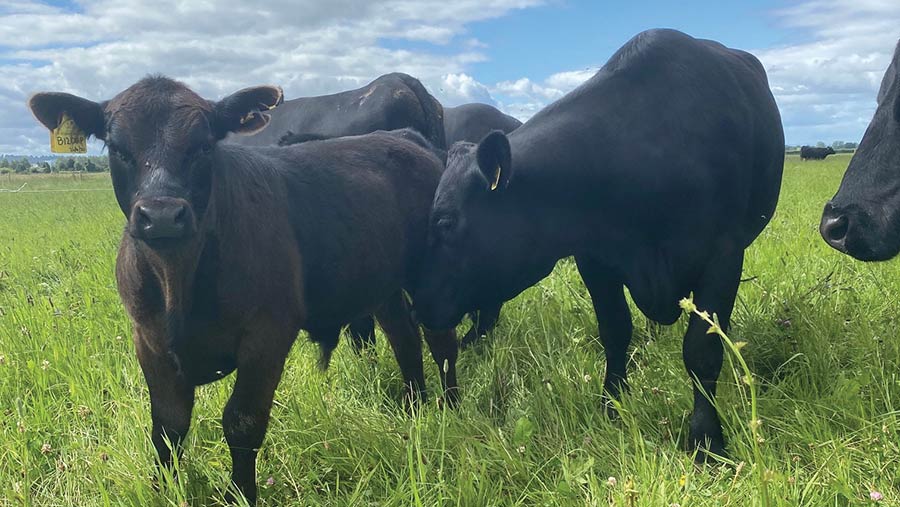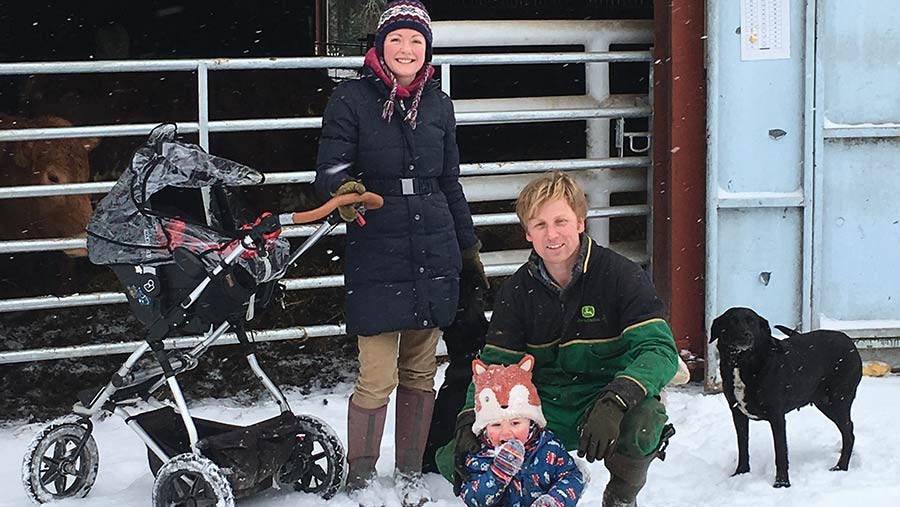Benefits of selling beef into the ethical market
 © Neil Harley
© Neil Harley The Ethical Butcher only launched in March 2020, but has already secured major funding from five livestock farmers and smaller investments from others.
Farshad Kazemian, chief executive officer of The Ethical Butcher, believes it is possible for farmers to go further than producing livestock in a carbon-neutral way. “Some businesses can be carbon-negative. Farming this way increases biodiversity and repairs land – rearing livestock on pasture can actually combat climate change.”
See also: Regenerative farming helps cut risk for sheep and beef farm
Background
Mr Kazemian had been a wholesale supplier of ethically raised meat since 2014, but in March 2020 he launched as an online supplier with equity raised through crowdfunding.
Requirements for supplying the Ethical Butcher
- Suppliers must farm in a way that increases biodiversity and regenerates the land
- No soya must be fed in the diet
- All nutrition must come from pasture or forage alone
- Animals must be allowed to exhibit their natural behaviour – for cattle this means grazing for the majority, if not all, of the year
Investors include farmers who have committed significant sums of money. In return they get a price premium paid a kilogramme deadweight.
The carcass grading structure is not as restrictive as the conventional system and recognises the fact it is more challenging to achieve consistency in a pasture-fed system, Mr Kazemian adds.
Premiums range from 10% for an investment of between £10,000-£20,000 and up to 30% for a major investment of more than £50,000. “We have launched this scheme to not only raise finance, but to secure supply,” says Mr Kazemian.
The equity is in the form of a share, but no dividends are paid in the first three years.
The investment qualifies for Enterprise Investment Scheme (EIS) tax relief – income tax relief is set at 30% of the value of the shares for the tax year in which the investment was made.
Mr Kazemian also has non-investor farmers supplying the brand. Some are receiving £4.10-£4.30/kg, which is 20-30p more than they received as a supermarket supplier, he says.
“For them it is more than the financial benefit, it is the satisfaction that their production methods are being recognised,” he says.
Case study: Neil and Susanna Harley, Shropshire
Shropshire beef farmers Neil and Susanna Harley say their ethical production methods dovetail perfectly with The Ethical Butcher’s ethos.
In 2019, Mr Harley invested £36,000 in the company and receives a 30% price premium for the cattle he supplies.

Neil and Susanna Harley, pictured with their son, Rollo, receive a 30% price premium for their beef © Neil Harley
He previously supplied all his cattle direct to processors and still sells a proportion that way, receiving an Aberdeen Angus premium.
Farmers who get paid the 30% premium must meet the cost of slaughter, hanging the carcass for 28 days and delivery to the buyer. This adds up to about £200 an animal. However, Mr Harley calculates he still makes an extra 5-10% margin above the Angus premium, depending on the year.
Farm facts
- 316ha (780 acres)
- Mixed soils, ranging from heavy clay and peat to sand
- 30 pedigree Aberdeen Angus cows and a commercial herd consisting of 80 first-cross Stabilisers from Simmental/Luing cows and 40 commercial Angus
- Certified by the Pasture-Fed Livestock Association
- Neil Harley also runs his own family’s farm in Wiltshire, where 700 cows are run on an organic system on conservation grazing on MOD land
Transition
The investment came at an opportune time, as the farm was changing focus.
Cheswell Grange Farm, which spans 316ha (780 acres), had been run as an arable unit until 2016, when the Harleys started the process of converting the land to permanent pasture and herbal leys. By the end of 2021, 178ha (440 acres) will be under pasture and mixed swards.
The farm has been in Mrs Harley’s family for five generations. “We want it to be that way for generations to come but, to do that, we have really had to change the way we look at things,” says Mr Harley.
There are moral reasons for this shift too. “We want to put carbon back into the soil and build resilience against the changing climate.
“The carbon in our peat soils had disappeared, but we are now saving what we have left and putting carbon back in by managing the land according to holistic principles,” he explains.
It also makes financial sense. “When you start running the sums on pasture-based farming and agri-environment schemes, it compares to wheat very favourably,” Mr Harley says.
The cattle enterprise
Although Cheswell Grange is not certified as organic, no chemical fertiliser or other chemical inputs are used on the grassland.
The farm supports 30 pedigree Aberdeen Angus cows and a commercial herd consisting of 80 first-cross Stabilisers from Simmental/Luing cows and 40 commercial Angus.
Animals are paddock-grazed and calves, which are all Aberdeen Angus, run with the herd for 15 months, and are naturally weaned. The cow and calf decides when the time is right, with the maternal bond lessening over time and milk supply gradually reducing as calves’ grass intakes increase.
There are challenges with this approach. First- and second-calving heifers can be slow to wean their calves and sometimes calves haven’t weaned by the time the next calf appears. When this happens, Mr Harley puts the older calf behind a fence.
He stresses the system is very commercial and every animal must have a calf every year.
Sales and future
To create room to hang the carcasses Mr Harley bought a chiller wagon and, apart from slaughtering off farm at a local abattoir, he says he is now in control from breeding right through to the finished product.
The only downside to selling to The Ethical Butcher is it can mean keeping cattle on-farm for up to six months longer than if selling to another processor.
“We could sell all the cattle in August, September and October and be clear until calving, but our buyer needs a consistent supply and that means planning the grazing and managing the feed,” explains Mr Harley.
As consumer demand grows, he hopes to supply all his cattle to The Ethical Butcher.
“We feel it is the way forward, to support a small British business that sells the meat as it should be – as a premium, not a commodity product,” says Mr Harley.
